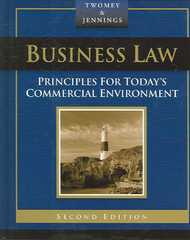Question
The first half of this assignment asks you to use US trade data from 2019. Openhttps://www.census.gov/foreign-trade/Press-Release/2019pr/12/ft900.pdfin a new tab (by right-clicking: iCollege sometimes crashes when
The first half of this assignment asks you to use US trade data from 2019. Openhttps://www.census.gov/foreign-trade/Press-Release/2019pr/12/ft900.pdfin a new tab (by right-clicking: iCollege sometimes crashes when you left-click on a link during an assignment). This is the December 2019 trade report from the US Census Bureau. Locate Exhibit 1 on the 21st page of the .pdf, which is labeled page 1 on the top of the page. This table shows US seasonally adjusted trade totals for 2017-2019. The trio of columns labeled "balance" means exports minus imports (also known as the "trade balance"). Being careful to locate the correct year and noting the units used, what was the US trade balance (a.k.a. exports minus imports) for 2019?
-$550,123,000
-$616,755,000,000
-$616,755
-$550,123,000,000
-$865,984,000,000
-$627,679,000,000
-$550,123
Continue to use exhibit 1 of the .pdf. Looking at the years 2017 through 2019, it is clear that the US is a _____ of goods and a _____ of services.
Note: "net exporter" within a category means that exports exceed imports in that category. "Net importer" in a category means that imports exceed exports in that category. Therefore, you can find this info in the "balance" columns or by doing the math yourself by using the "exports" and "imports" trio of columns.
A. net exporter; net importer
B. net importer; net exporter
C. net exporter; net exporter
D. net importer; net importer
Move to Exhibit 7, which is on the 27th page of the .pdf file and is numbered as page 7 on the top of that page. This breaks down US exports of goods by specific goods (also seasonally adjusted). For 2019, what type of grain accounted for the largest dollar value of US exports (by far)?
(Note that "grains" is a fairly large category that includes peas, beans, and oilseeds as well as what you might traditionally think of as grains.)
corn
barley
sorghum
wheat
rice
soybeans
Move on to Exhibit 9, on the 31st page of the .pdf, the page numbered 11 at the top of the page. This table breaks up (seasonally adjusted) US trade into petroleum products like oil and non-petroleum products like metal and fish. Looking at the detail within the months of 2019, which of the following is true?
Interesting!
A. The US was a net exporter of petroleum products during every month of 2019.
B. The US was a net exporter of petroleum products during the beginning months of 2019, but became a net importer of petroleum products during the end months of 2019.
C. The US was a net importer of petroleum products during every month of 2019.
D. The US was a net importer of petroleum products during the beginning months of 2019, but became a net exporter of petroleum products during the end months of 2019.
Now, move on to Exhibit 14 on the 36th page of the .pdf, which is the page numbered 16 at the top of the page. This breaks down (non-seasonally adjusted) trade by trading parters (countries and groups of countries). Whichcountry(nota group of countries) did we export the most to in 2019, when measured by the dollar value of exports? Be sure to use the data for the full year of 2019.
Note that the European Union is not a country.
Mexico
Germany
Japan
China
Canada
the European Union
the United Kingdom
North America
Using the same table, which country did we import the most from in 2019, when measured in dollar value? Be sure to look at the column for the full year 2019.
Canada
Mexico
Germany
Europe
China
Japan
Other
Step by Step Solution
There are 3 Steps involved in it
Step: 1

Get Instant Access to Expert-Tailored Solutions
See step-by-step solutions with expert insights and AI powered tools for academic success
Step: 2

Step: 3

Ace Your Homework with AI
Get the answers you need in no time with our AI-driven, step-by-step assistance
Get Started


